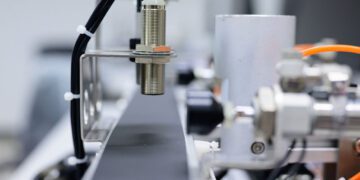In a rapidly changing global landscape, the chemicals and synthetics industry is undergoing transformative shifts. Leveraging technology stands as a potent solution to not only streamline processes but also ensure a future-proofed industry. “In the crucible of chemicals and synthetics, technology is the catalyst driving change.”
1. Digital Transformation: Beyond Basic Automation
Integrated Systems: Modern chemical plants are moving towards Industry 4.0, integrating AI, IoT, and advanced robotics to enhance efficiency and minimize human intervention.
Data Analytics: Harnessing big data offers insights into production trends, efficiency metrics, and potential areas for optimization.
2. Smart Manufacturing: Rethinking Production
Real-time Monitoring: Sensors and advanced analytics tools provide real-time feedback, ensuring instantaneous adjustments to maintain quality.
Predictive Maintenance: AI-driven tools forecast machinery wear and tear, preemptively addressing potential breakdowns.
3. Sustainable Solutions: Green Tech in Production
Energy Efficiency: Advanced energy management systems and renewable integration reduce the carbon footprint of chemical production plants.
Waste Management: Innovations like smart separators and recyclers ensure minimal waste generation, with maximum resource utilization.
4. Advanced Simulation and Modelling
Virtual Reality (VR): VR assists in training staff, simulating potential challenges, and testing solutions in a risk-free virtual environment.
Molecular Simulations: Before actual synthesis, chemical reactions and processes can be modeled, saving time and resources.
5. Blockchain and Supply Chain Management
Traceability and Transparency: Blockchain’s decentralized ledger ensures a transparent, tamper-proof record of every production stage and transaction.
Smart Contracts: Automated, blockchain-driven contracts expedite transactions, ensuring smooth inter-company dealings.
6. Customization and Personalization with AI
Adaptive Production Lines: AI algorithms adjust production in real-time, catering to specific, often fluctuating market demands.
Quality Assurance: AI-powered cameras and sensors ensure products meet the set standards, reducing human error.
7. Cybersecurity: Shielding the Digital Frontiers
Firewalls and Encryption: As the industry becomes more digital, safeguarding proprietary information and system controls is paramount.
Regular Audits: Periodic cybersecurity assessments keep systems updated and vulnerabilities at bay.
Conclusion
As technology continues to evolve, its seamless integration into the chemicals and synthetics industry is not just beneficial but essential. Future-proofing the industry means embracing these technological wonders, marrying the intricacies of chemical processes with the precision of advanced tech. In doing so, the industry not only ensures its relevance but also its resilience in a future teeming with uncertainties.




















